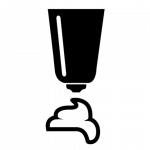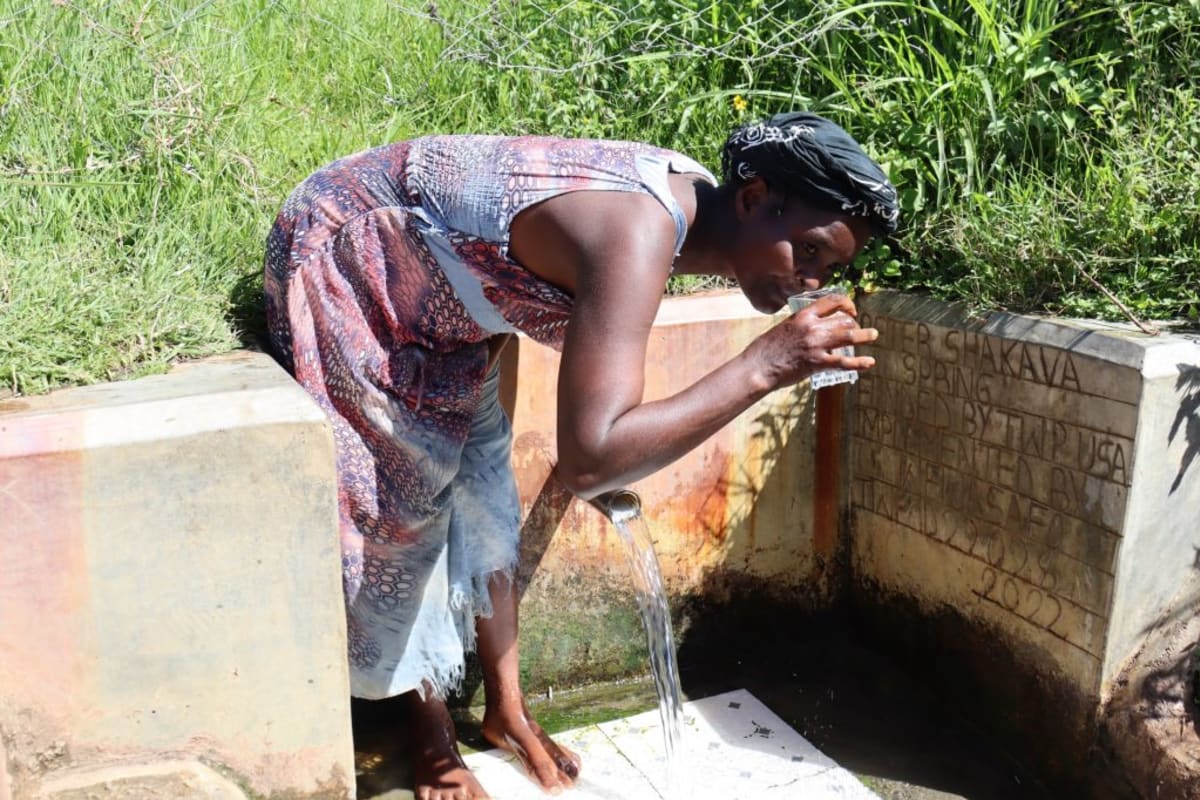Field Officer Jacklyne Chelegat felt a great deal of sympathy when she witnessed the condition of Peter Shakava Spring. The 147 community members of Chombeli rely on the unprotected spring as their primary water source.
"Having a look at the dirty water in this unprotected spring pains [me] a lot," Jacklyne said. "As an ambassador of change, [I believe the] protection of this spring will be the best solution [for these people] to access clean and safe water."
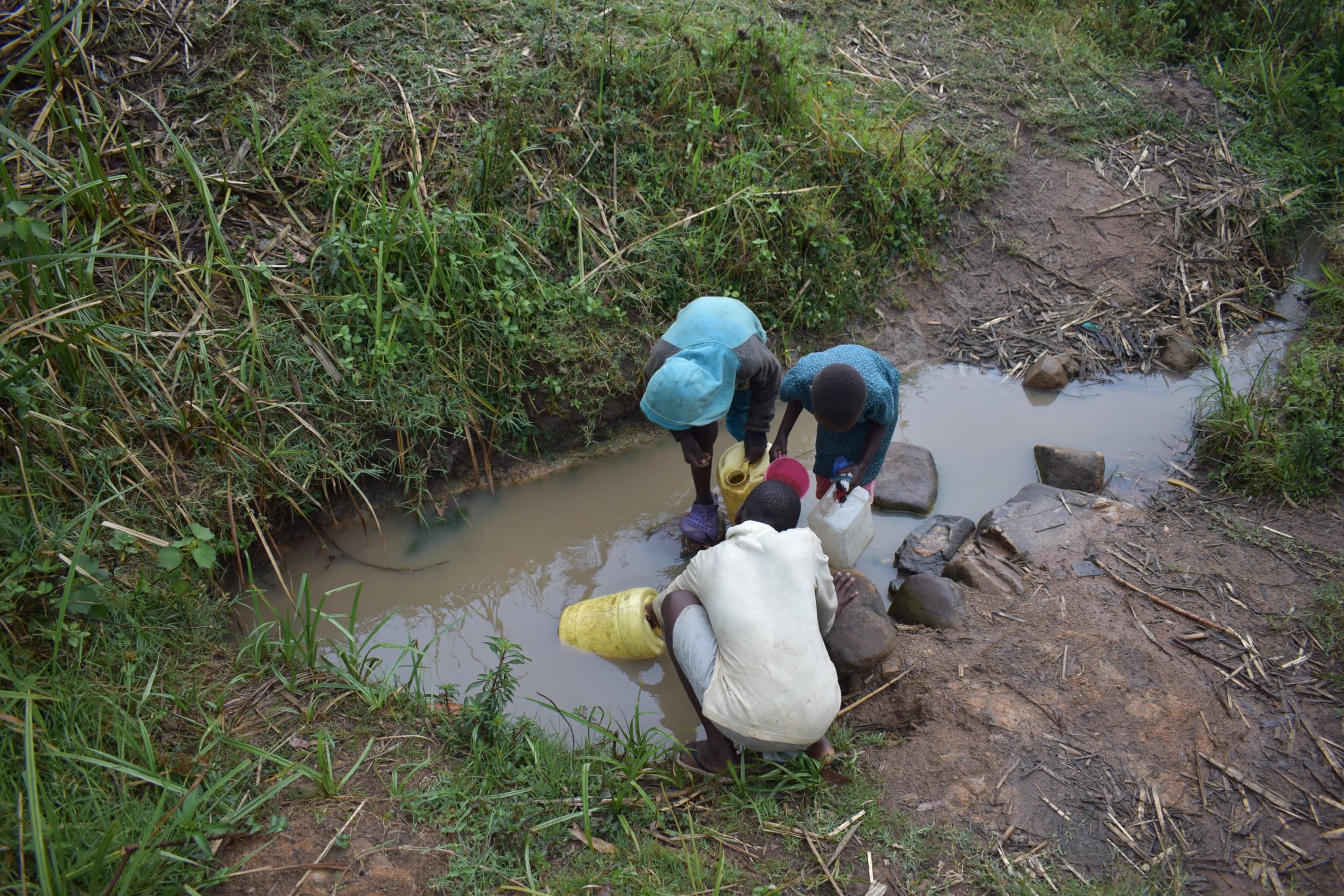
The spring is small and wide open to dirt and contamination from people, animals, and the surrounding maize and sugarcane plantations. Individuals allow the water to settle after the last user before they collect, otherwise, it will be entirely muddy and unusable. This is a tiring and tedious process.
Jacklyne, who has been with The Water Project since 2014, is painfully aware that dirty water leads to ill health and high medical expenses, causing people to lose valuable resources and hopeful futures. She said, "Having conducted the survey after it had rained, the waters were so dirty. At a glance of it, I got scared."
When people have access to clean water, they are healthier and can maintain more of their income, rather than wasting it on medical treatments (WHO Africa).
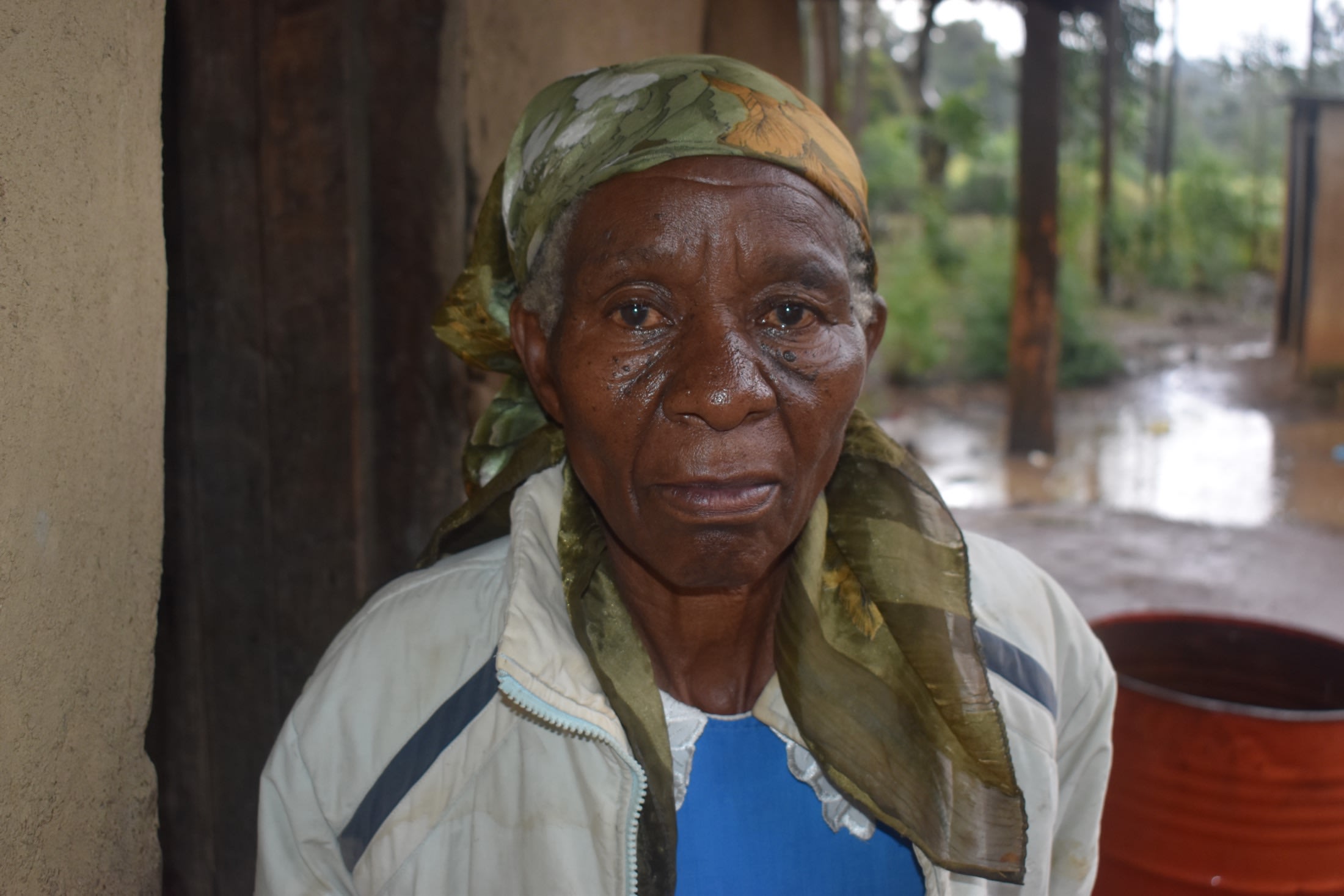
Farmer Diana Shakava (shown above), 58, shared how relying on the contaminated water from the community spring has caused her to lose both her health and her finances. "Fetching dirty water from this spring is quite devastating. Going to the hospital has been a norm and it really exhausts my finances."
There have been many reported cases of typhoid and diarrhea in the community, and the adults are not the only ones suffering.
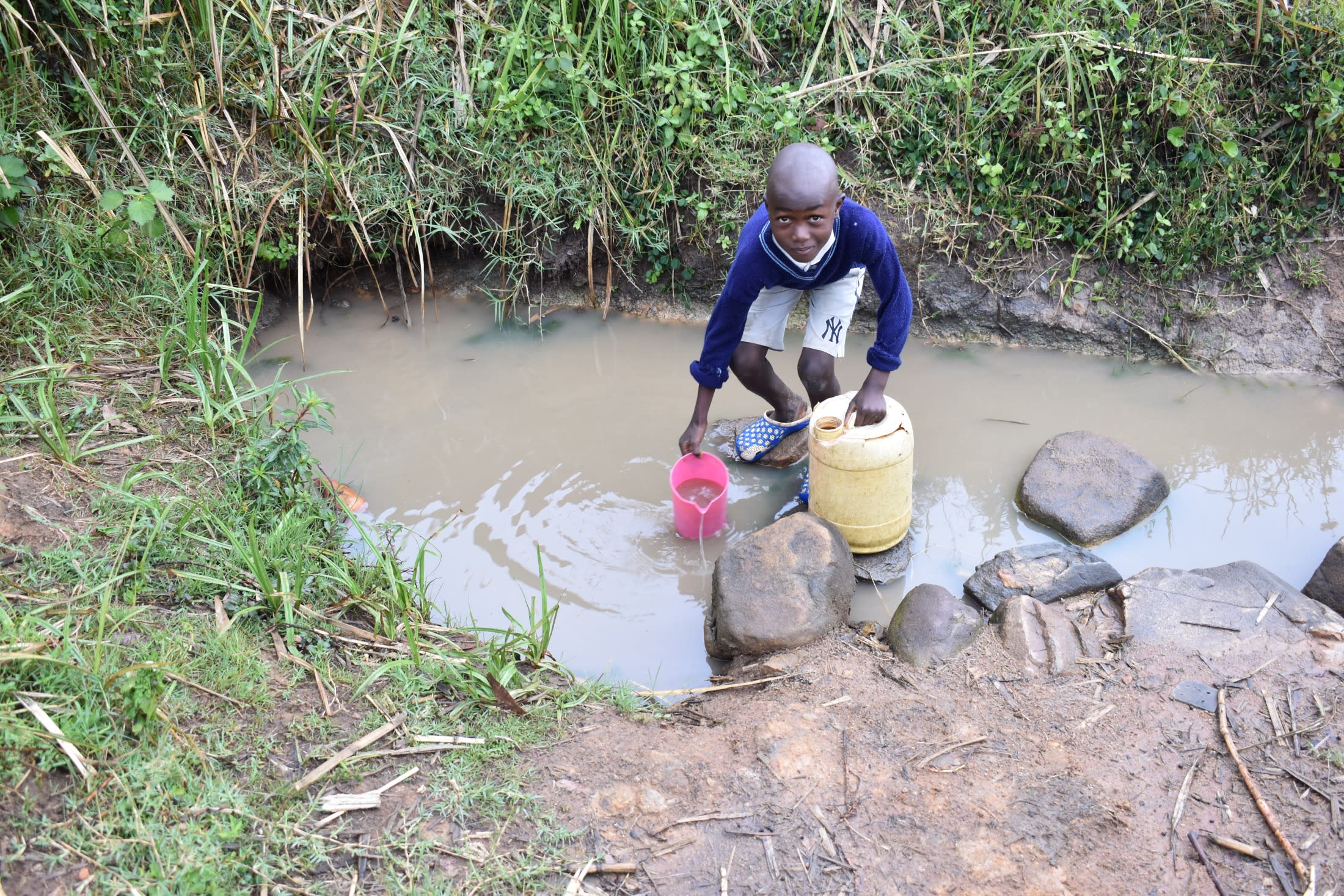
"Fetching water in this unprotected spring has been so troubling. I frequently become sick and this has made me not go to school," said 12-year-old Brian L. (shown above).
Children are more susceptible to water-related diseases. Clean water keeps them healthier allowing them to attend school and enabling brighter futures (WHO Africa).
Alternatively, the only other water source for those living in Chombeli is collecting rainwater during the rainy season. Sadly, many of the community's members live in grass-thatched houses and are at a distinct disadvantage since they only have the contaminated spring to rely on.
What We Can Do:
Spring Protection
Protecting the spring will help provide access to cleaner and safer water and reduce the time people have to spend to fetch it. Construction will keep surface runoff and other contaminants out of the water. With the community's high involvement in the process, there should be a good sense of responsibility and ownership for the new clean water source.
Fetching water is a task predominantly carried out by women and young girls. Protecting the spring and offering training and support will, therefore, help empower the female members of the community by freeing up more of their time and energy to engage and invest in income-generating activities and their education.
Training on Health, Hygiene, COVID-19, and More
To hold trainings during the pandemic, we work closely with both community leaders and the local government to approve small groups to attend training. We ask community leaders to invite a select yet representative group of people to attend training who will then act as ambassadors to the rest of the community to share what they learn. We also communicate our expectations of physical distancing and wearing masks for all who choose to attend.
The training will focus on improved hygiene, health, and sanitation habits in this community. We will also have a dedicated session on COVID-19 symptoms, transmission routes, and prevention best practices.
With the community's input, we will identify key leverage points where they can alter their practices at the personal, household, and community levels to affect change. This training will help to ensure participants have the knowledge they need about healthy practices and their importance to make the most of their water point as soon as water is flowing.
Our team of facilitators will use a variety of methods to train community members. Some of these methods include participatory hygiene and sanitation transformation, asset-based community development, group discussions, handouts, and demonstrations at the spring.
One of the most important issues we plan to cover is the handling, storage, and treatment of water. Having a clean water source will be extremely helpful, but it is useless if water gets contaminated by the time it is consumed. We and the community strongly believe that all of these components will work together to improve living standards here, which will help to unlock the potential for these community members to live better, healthier lives.
We will then conduct a small series of follow-up trainings before transitioning to our regularly scheduled support visits throughout the year.
Training will result in the formation of a water user committee, elected by their peers, that will oversee the operations and maintenance of the spring. The committee will enforce proper behavior around the spring and delegate tasks that will help preserve the site, such as building a fence and digging proper drainage channels. The fence will keep out destructive animals and unwanted waste, and the drainage will keep the area's mosquito population at a minimum.

 Protected Spring
Protected Spring
 Rehabilitation Project
Rehabilitation Project




